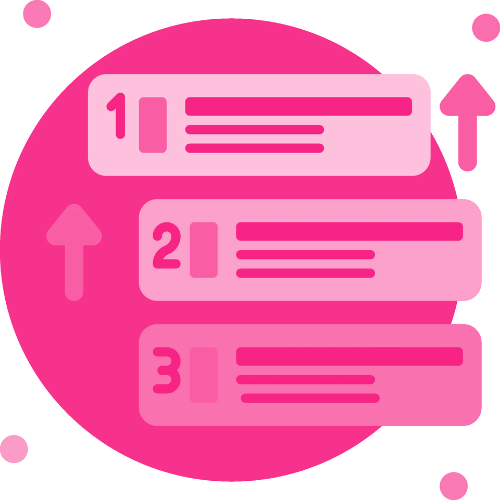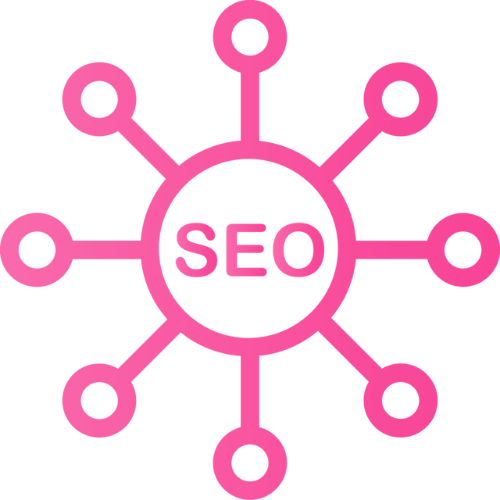What is SEO? The Basics of Search Engine Optimization

Jan 17 | Milyon Digital
I’ve worked in marketing for over 7 years, and I can tell you that SEO is BY FAR the most confusing concept to a lot of new business owners.
If that’s you, take a deep breath, and know that it’s completely normal to feel overwhelmed by this field. That’s why I’m here to help.
By the end of this article, you should not only know the basics of SEO but WHY it matters for your marketing strategy, and your brand.
Speaking of, let’s dive right in: what’s in it for you?
Why is SEO Important?
SEO stands for Search Engine Optimization. But what does that mean, really?
Think about the last time you typed a search into google, and got results back.
How helpful were they?
Did those results answer your question, provide product recommendations, or deliver helpful insight into a topic you were interested in?
Also – did you spend a lot of time going through pages of results? Or did you click on an option on the first page?
SEO is all about making your website the BEST answer to the questions and queries your IDEAL consumers have, so that your site appears first when those searches are made.
Over time, and with some care, it means that more people will naturally want to visit your site, and your visits will grow like a plant (this is why it’s called “organic” traffic).
Here are a few ways your business benefits:
1.) Higher Rank in Search
Results = More Visibility, More Often
Getting your website to pop up FIRST in search results is a big deal.
It’s like getting a Superbowl-size audience of people who are already interested in what you have to offer.
That increases your chances to make sales, create leads, or provide information, without paying money every day to get your message out there.
2.) A Better User Experience = Better Reputation, and More Conversions
You only get one chance to make a first impression.
If your site is the BEST answer to a customer’s question, that gives your brand an incredible leg up on the competition.
You establish trust and authority with that customer before they make any kind of “conversion” decision.
Additionally, part of good SEO strategy is having a website that is organized, easy to read, and loads quickly on all devices (we’ll get into all that below).
When your site is fast, easy to navigate, and provides great information, visitors will stick around, convert, or even share with friends!
3.) Support for Your Digital Marketing Strategy = Good Marketing Foundation
You likely have other marketing efforts that you want to focus on, such as paid advertising, social media marketing, email, events, and more.
An optimized website will help you understand how customers find you without these paid channels, and give you a rock-solid foundation for the rest of your marketing strategies.
Below are just a few examples:
-
SEO-optimized blogs can turn into videos, social media posts, and a myriad of marketing touchpoints for customers, designed with core keywords in mind.
-
Knowing your high-performing organic keywords can inform and optimize your PPC keyword targeting, social media hashtags, and more.
-
Knowing how to optimize your website will give you confidence as you add landing pages, product pages, and more.
When you place your marketing budget behind a site that is already working for you, your efforts will go much further toward making your business successful.
OK – all of those benefits sound worth the hype, but how does this all come together? Let’s start by talking about your website’s two audiences, and what they’re looking for.
The Two Internet Audiences: Human, and Bot
Every page on your website will have two types of readers: the human user, and the search engine bot.
Both of these audiences have unique needs.
If you can make your site easy to read and navigate for both of these audiences, your SEO strategy will be one of the best out there. Lets talk briefly about your human readers first.
Answering the Right Questions
Your human audience, generally speaking, wants it to be easy to find the answers to their questions.
They want to type in a question or query into a search engine, and receive relevant information, delivered quickly, through a site that is easy to navigate and understand visually.
Once their needs are met, they will be more inclined to consider converting, and delighted if converting is just as simple as their first search. This goes a long way into giving your customers a good experience.
Research Organic Search Results
Put yourself in your customer’s shoes for a second. If you were looking for your business, and didn’t know about it yet, what might you search for in google?
Take out your phone or get on your computer and search. See what sites come up. Ask yourself:
-
What was your intent when you made this search? Did you want information, or were you ready to buy something?
-
Are there ads on this page?
-
When you scroll down, what titles and descriptions are you reading in search results?
-
Are there words that keep popping up over and over?
-
Are your results giving you what you were looking for?
Now, click on the first few organic (non-ad) results, and look at how these sites are set up. Ask yourself:
-
How quickly did the page load?
-
What text are you reading?
-
Is the content structured with headers and bullet points? Is it easy to scan and find what you are looking for?
-
What words keep popping up over and over as you read this page?
-
Was the website easy to navigate after you landed on that page?
-
Were you guided toward conversion, or did you find it difficult to figure out where to go next?
After looking at these sites, take note of things you liked, and also what you think you can do better on your own pages.
Meeting the needs of your customer first will go a long way into building loyalty over time.
But in order to get in front of human eyes, you need to help the search engine understand your site, too. That’s where bots come in.
What are Search Engine Bots?
Also known as “crawlers” or “spiders,” these are digital tools that search engines use to figure out what your site is about, and what content is most important on each page.
These bots crawl millions of pages, every single day, to monitor sites for changes that will help them select sites for search engine results. But their journey is much different than a human reader when looking at a web page.
How Web Pages are “Read” By Site Crawlers
Search engine bots don’t have vision like humans, so they cannot “see” your webpage.
Instead, they scan the code on the back end of your website, and “feel around” for different types of information, in order to get a sense of where they are and what is important.
Some of the most important information that bots look at are:
-
Page titles and descriptions – Like a book cover, a title and description help the bot understand what a web page is about, and what the content will be. When you search for something in google, the results on the page are made up of page titles and descriptions as well, so they are super relevant for humans, too.
-
Headers and content tags – Tags are found in your site’s code, and they help a bot understand how content is organized on a site. They are usually structured in order (<h1>, <h2>, <h3>, etc.), and will appear to a human reader like the headers on each section of this blog. Tags will signal to the bot how to prioritize the importance of the content on the page.
-
Image Titles and Alt Text – Remember that bots cannot see the way humans can. So they will use the image file name and alt text to determine what each image is about on your site. You might have seen alt text in the past, if an image did not load on a site for you and you saw an icon with a description attached instead. That description can also help rank your site higher if a human does an image search, too.
-
Links – Bots want to understand how a web page is connected to the rest of your site, and how it connects to other sites as well. They’ll look at all the links on your pages to get a better understanding of your own site structure. Then, they’ll look at who else you link to, AND, who is linkin
g back to you. This helps the site understand if you are a good source of information.
What’s Next in Your SEO Journey?
SEO is all about laying the foundation for your ecommerce marketing strategy. To that end, you’ll need to optimize your website for both your human and bot audiences. But how is this done? And what should your first step be?
Head to Part 2 of our SEO series to continue learning. Or, if you want a more in-depth consultation, book a free consult appointment with us! We’ll be happy to take a look at your site and give you some insights.
Save it! Milyon Mini-Lesson:
Previous Post
—




